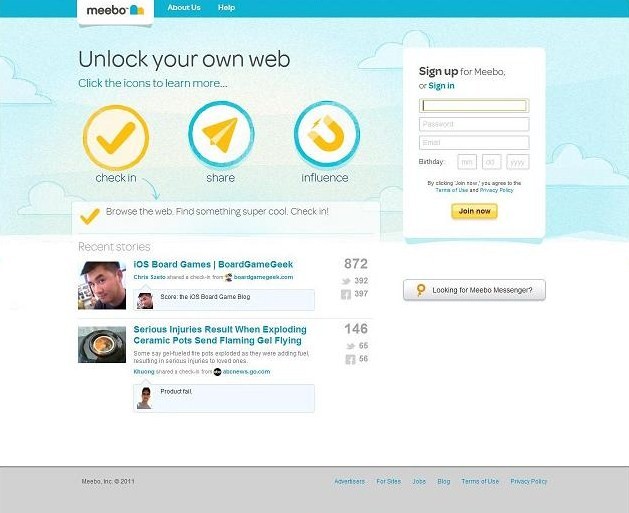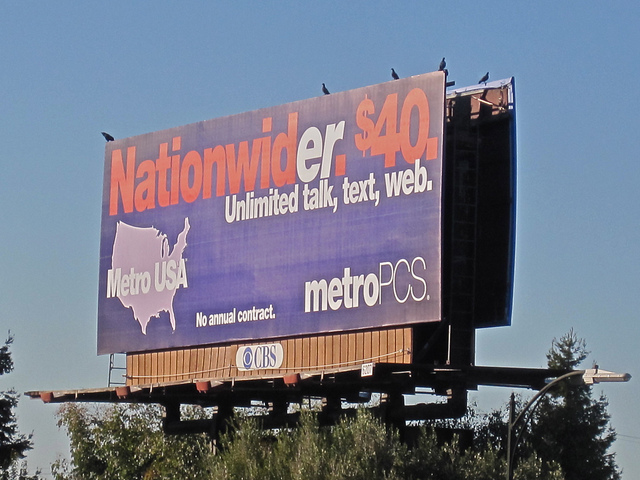
Thanks in part to the still-stagnant economy, the last year has seen more than the usual share of companies and products come and go. Some were beloved, some were depended upon, and others were...well, there's a reason they're not around anymore.
Not all companies and product lines are built to last; some are like shooting stars, grabbing our attention by their audacity and burning up quickly in the process. Others suffer deaths by lawsuit, corporate takeover, or simply the shifting whims of their creators. And others (like social coupons, for example) still linger painfully, continuing under their own inertia long after they by all rights should have ceased to exist.
So let us take a moment, then, to remember a few of the companies, brands, and products that went to the great electronic recycling center in the sky in 2012. Some you may still have traces of in your sock drawer; others may be slowly decaying in a stack somewhere in your IT department. Some of them will be sorely missed by their loyal customers. Others…again, not so much.
Buckyballs

Buckyballs, the sets of tiny rare-earth magnetic balls that can be manipulated into all manner of sculptures, have been around for years now. Make a diamond, a pyramid, a tube, a geodesic dome—the possibilities were limited only by your imagination, the size of your ball stash, and on rare occasions, the physics governing the curiously strong little magnets.
But in 2012, a pall was cast over the sculpting fun: turns out that if you ingest a couple of buckyballs (or 37), the magnets are actually strong enough to puncture holes in your digestive system, if they can get on opposite sides, of, say, your intestine. Buckyball packaging was explicitly labeled “keep out of the hands of children,” but the number of cases particularly involving hapless kids grew. The Consumer Product Safety Commission intervened with a formal administrative complaint looking to block sales.
The owners of Buckyballs reacted indignantly, pointing out the number of accidents children have with stairs and coconuts; why hasn't the CPSC banned those yet? The owners even got members of Congress to write a letter to the President on their behalf, but to no avail. The CPSC successfully banned the products, and Buckyballs tendered their last sales on December 21. If you’re only just discovering the wonders of Buckyballs, we bid you good luck on the black market.
~Casey Johnston
Google Apps Standard
Google Apps has been around for a long time, but there's been a much less-promoted free tier hiding a few levels down on the Google Apps site. Called "Google Apps Standard Edition," it offered almost the same feature set as "full" version of Google Apps, with the main differences being a limit of 10 accounts and much smaller mailbox limits on those accounts. Still, it was free. If you wanted to host your own domain, it was far and away the easiest method of having your domain's e-mail and even basic Web hosting taken care of. It was a trivial matter to sign up for the free Google Apps tier, register or transfer in your own domain name, and immediately be able to send and receive e-mails from @yourdomain.com addresses.
I say "was" because Google abruptly terminated the free tier of Google Apps just a couple of weeks ago, in a move clearly designed to extract additional revenue out of the SMB segment. Existing free tier users are grandfathered in and can keep using the services, but no new users can sign up. Instead, Google now requires either $50 per user per year or $5 per user per month, meaning that you must cough up $500 per year for the same domain and ten accounts that you previously could have signed up and gotten for free. It's perhaps silly to decry the death of a free service (in no small part because of the adage that if you can't find the fee for a service, you're not the service's customer, but rather the service's product), but Google's excuse for killing off the free tier is especially weak: "Both businesses and individuals signed up for this version, but time has shown that in practice, the experience isn't quite right for either group. Businesses quickly outgrow the basic version and want things like 24/7 customer support and larger inboxes. Similarly, consumers often have to wait to get new features while we make them business-ready."
"We need to monetize this more and we don't want to give it away for free" would have been a lot more honest. Instead, the excuse given smacks of marketing-driven doubletalk: "Let us tell you why you paying more is a good thing!" Thanks, Google.
~Lee Hutchinson
Meebo Messenger

Another Web service Google snuffed this year, Meebo was never meant to be a long-term play. The Web-based instant messaging play was among the first to integrate into all the major IM services, but it got its funding mostly with one goal: to be acquired by someone (and preferably Google). Six years after its launch, it finally did—and promptly killed the services its users were the most dependent on.
For many who were blocked from using IM clients from work or wanted to keep all their IM logs in one place, Meebo Messenger was the best thing since Jabber. But when the acquisition didn't come as early as hoped, Meebo had to come up with another plan for survival, and make it on its own, adding services such as an in-blog embedded chat client, and clients for both Android and iPhone.
But what really, finally got Google's attention was the Meebo Bar—a widget that provides a way to add "social engagement" to websites and surface more advertisements as well, all on a JavaScript bar that never scrolls off the browser window. So when Google acquired Meebo in July, everything else got thrown out the window. At least Meebo helpfully pointed to other products its jilted customers could use.
~Sean Gallagher
Pano Logic

There was no more mysterious company death in 2012 than Pano Logic, the Redwood City, CA maker of "zero client" virtualized desktop hardware. The company's end in October came so quickly that it didn't even have time to issue a press release or change its home page.
Unlike some of the other thin clients on the market, the Pano client looked cool—a shiny cube that resembled an art-museum gift shop paperweight more than a computer from the front. And by all accounts they were finding an audience. The company had a large customer base among banks and credit unions, who loved the centralized control over desktops and bought into the whole reduced cost of operations Pano Logic promised. On October 22, Pano announced a major deal with a credit union in Alabama to replace 75 percent of the institution's PCs.
But the very next day, the axe fell. All of Pano's employees were laid off without any warning and the company ceased to exist—leaving its customers stuck with no tech support.
At first, there were rumors that the company had run into legal trouble in the wake of Dell's acquisition of Wyse, which also offers a "zero client" product—some people suggested that Dell had sent Pano a cease and desist letter regarding Wyse's trademarks and technology. But Dell denied those rumors, and it soon became apparent that Pano—which was preparing for another round of recruiting investors—had simply run out of cash, and had filed for an Assignment for the Benefit of Creditors, handing the company over to Sherwood Partners LLC for liquidation.
~Sean Gallagher
Zune

The Zune brand was introduced by Microsoft a mere six years ago and officially laid to rest this past June. Redmond announced at its E3 press conference in Los Angeles that it would discontinue marketing its music and mobile products with “Zune." Instead, Microsoft rebranded its music service Xbox Music, which now extends to Windows 8 PCs, tablets, Windows Phone 8 smartphones, and the Xbox 360 console.
The Zune brand was once considered a major rival to Apple’s music offerings, but it suffered along with dismal sales of its music players. Though Microsoft actually ceased production of Zune hardware in October 2011, the desktop software continued to live on with its subscription music service and functioned as management software for Windows Phones.
Zune software is still downloadable for Windows Phone 7 and older Zune devices. But inevitably, it will be phased out by the succession of Windows Phone 8 phones and beyond.
~Florence Ion
Megaupload

Most online services fade away when they're past their prime, get clobbered by a competitor, or they just can't turn customers' heads anymore. I've always been interested in the few that have managed to get knocked out from legal action, though: the Napsters, the Groksters; and last year, ivi.TV and Zediva
Just three weeks into 2012, another file-sharing service alleged to violate copyright law was shut down—Megaupload. But it wasn't killed off by a lawsuit; Mega and its eccentric, loudmouth founder Kim Dotcom disappeared in the most unorthodox way possible. His home was raided by New Zealand cops, complete with helicopters and attack dogs.
Of all the controversial services that Hollywood says have broken copyright law, Megaupload's story is the wildest by far. The site made heaps of money and rapidly became one of the most popular destinations on the Web. It did so by offering rewards to users that uploaded popular content, which practically guaranteed many would distribute pirated content through the site. It's a model that Hollywood is determined to stamp out.
The fact that Dotcom drew the attention not just of content holders, but the US government, represented a dramatic new escalation in the copyright wars. Police in several countries were involved in the operation. How the story will end is still unclear—today, Dotcom continues to fight his extradition from New Zealand. If he makes it to court in the US, he could be facing serious prison time. He continues to grandstand, too; launching a called simply "Mega," and posing for a cover story in Wired, all while his legal battle continues.
~Joe Mullin
MetroPCS

In early October 2012, representatives from MetroPCS and T-Mobile announced the details of their upcoming merger. Big T, backed by its German parent company, Deutsche Telekom, would acquire America’s number five carrier.
It’s likely that sometime in 2013, MetroPCS as we knew it will likely cease to exist. It will likely be subsumed under the brand of T-Mobile. While I’ve also previously been a T-Mobile customer, it’s MetroPCS I’ll miss more. After all, that prepaid giant was my first mobile phone company ever. Back in Summer 2003, after returning from a study abroad in Senegal (where 10 of us shared a single cellphone), I finally plunked down for my first, bona fide phone. It was a Kyocera candybar style-phone (I’ve forgotten the specific model), and I didn't do much with it besides call and text.
I was attracted to MetroPCS as a poor college student mainly because they offered unlimited texting and calling. Figuring out how many minutes I needed seemed awfully complicated to me (200? 500? 1,000?) as I’d never bothered to count how many minutes I was on the phone before. At that time, MetroPCS’ deal was that they’d give you unlimited calling so long as you were in a restricted area. In my case, that meant a large zone extending from Santa Cruz to Sacramento. Living squarely in the middle, I was fine. But the number I got then was later ported to T-Mobile, and now to my current provider, Straight Talk. I doubt I’ll ever get rid of it. Thanks for the memories, MetroPCS.
~Cyrus Farivar
iDisk

What was great about iDisk was that it came integrated with OS X. Few syncing services were nearly as convenient when iDisk was around, and even today, many Mac users make use of Dropbox's OS X client to behave in (largely) the same way as iDisk did. But because of its problems, many other Mac users never bothered putting important files on iDisk, fearing the day they relied on Apple's cloud prowess to keep their sacred data safe.
~Jacqui Cheng
reader comments
133